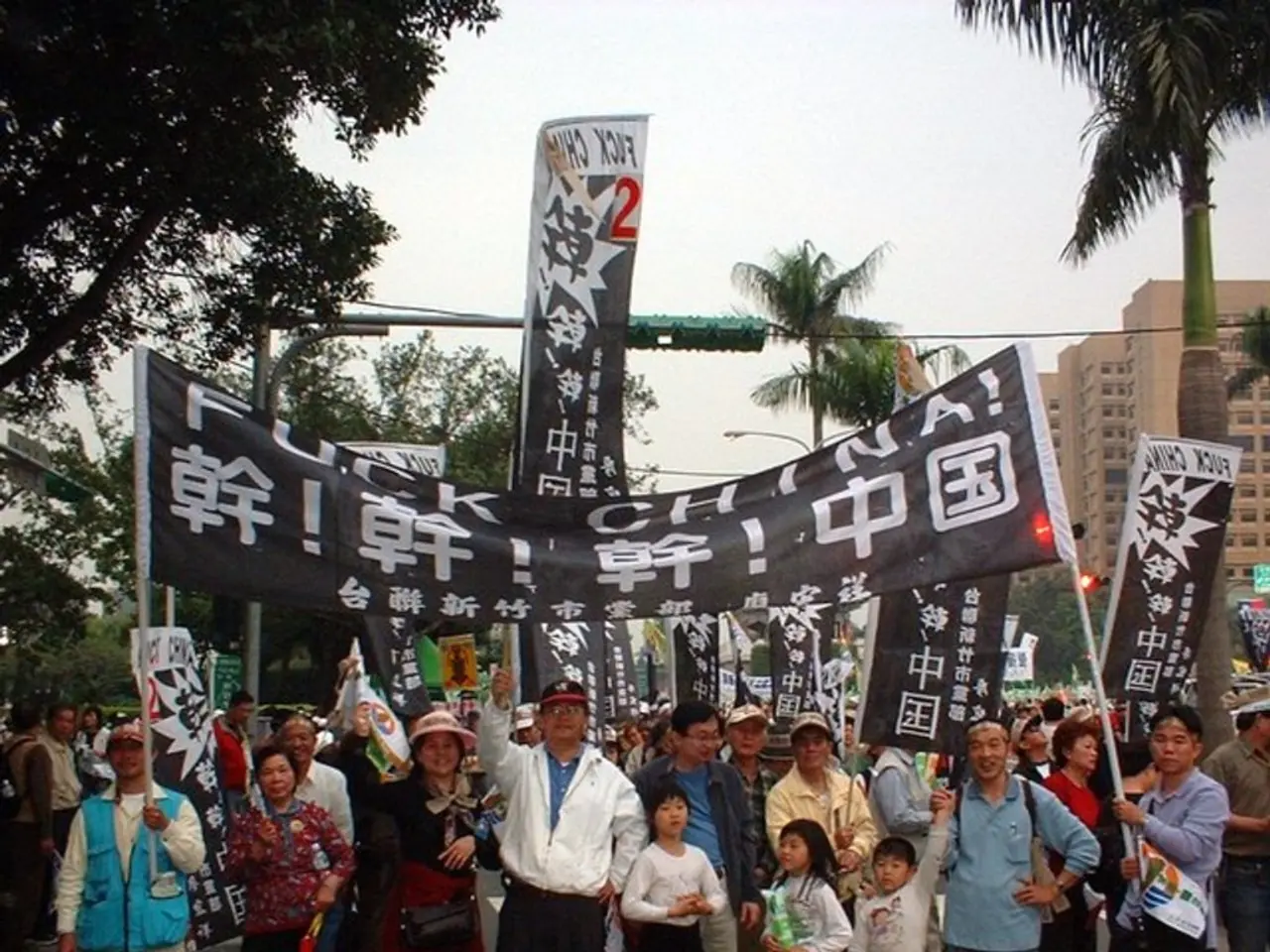Dilemma faced in choosing the general welfare
In the heart of Canada, Quebec has become a beacon of environmental activism, particularly in the fight against shale gas exploration and extraction. This historic battle, led by prominent figures like playwright and activist Dominic Champagne and labour and social movement leader Gérald Larose, has shaped Quebec's energy policies and set a precedent for other regions grappling with similar issues.
The movement, which gained momentum around 2010, was fueled by public protests, political advocacy, and alliances with Indigenous and environmental groups. Concerns over potential environmental harm, public health risks, and the impact on climate change drove this mobilization.
One of the movement's significant victories came in 2011 when the Charest government suspended the effect of exploration licenses over a large part of the south. This decision reflected growing public opposition and the precautionary principle, a philosophy that prioritizes avoiding harm when potential risks are present.
The resistance network, comprising scientists, artists, politicians, union members, First Nations members, farmers, hunters, and more, employed various strategies to amplify their cause. Popular education was a key strategy, equipping citizens with the knowledge to debunk industry spins and make informed decisions. Elements of civil disobedience were also present, creating friction but serving to draw attention to the ecological damage and the need for change.
The success of the campaign against shale gas in Quebec is often cited as an example of eco-citizen activism around the world. In 2017, the Couillard government announced the end of oil and gas exploration and exploitation on Anticosti Island. The following year, the Legault government completely closed the door to shale gas in the St. Lawrence Valley.
These decisions reflect Quebec's evolving relationship with hydrocarbons. The province discovered itself as a land of hydrocarbons at the end of the 2000s, with 12,500 km of gas exploration permits issued in the St. Lawrence Valley. However, the shale gas battle has led to a more cautious approach, emphasizing environmental protections and community rights before any resource exploitation.
The ban on hydrocarbons is the culmination of an unprecedented citizen's mobilization that started about fifteen years ago. This movement, while not without its challenges, has demonstrated the power of collective action in shaping policy and protecting the environment.
As the world grapples with the climate crisis, the Quebec shale gas battle serves as a reminder of the urgent need to wean ourselves off U.S. dependencies and transition to cleaner, more sustainable energy sources. The legacy of this battle in Quebec is a testament to the potential for grassroots activism to drive change and protect our planet.
References: - [1] Le Devoir. (2021). Quebec's Shale Gas Battle: A Triumph of Eco-Citizen Activism. Retrieved from https://www.ledevoir.com/opinion/columnists/576337/la-bataille-du-schiste-au-quebec-un-triomphe-de-l-activisme-eco-citoyen - [2] Government of Quebec. (2018). Shale Gas: Moratorium. Retrieved from https://www.gouv.qc.ca/fr/actualites/2018/09/schiste-houilleux-moratoire - [3] U.S. Environmental Protection Agency. (2016). Hydraulic Fracturing for Shale Gas: Impacts from the Hydrostatic Fracturing Process on Drinking Water Resources in the United States. Retrieved from https://www.epa.gov/hfstudy/final-hydraulic-fracturing-study-2016
- The victories of the environmental activism movement in Quebec, rooted in science, policy, and legislation, have pushed for a shift in the province's approach to environmental protection and resource extraction, with a focus on climate-change mitigation, the precautionary principle, and the rights of communities.
- Driven by a combination of grassroots activism, alliances with diverse groups including scientists, artists, Indigenous peoples, and labor unions, and expedient use of popular education and civil disobedience, the movement against shale gas in Quebec has set a global standard for eco-citizen activism.
- Facing the urgent climate crisis, nations worldwide can draw inspiration from the Quebec shale gas battle as a powerful illustration of the transformative potential of community-led activism and the pursuit of sustainable, clean energy policies.







